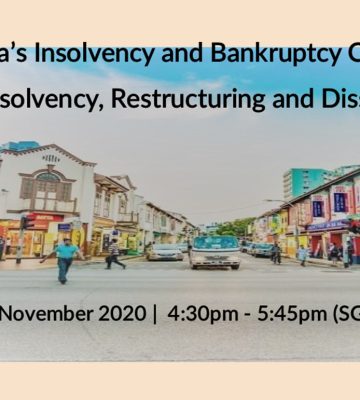It has been reported (in Chinese) that on September 26, 2023, the Shanghai No. 3 Intermediate People’s Court (Shanghai Court) issued a ruling to recognize the civil rehabilitation proceedings, a type of Japanese insolvency proceedings that adopts the debtor-in-possession model, of a Japanese debtor with assets in Shanghai and the capacity of the Japanese supervisor, and to allow the Japanese supervisor to supervise the debtor in managing its assets and business affairs independently in the Mainland under certain circumstances.
Publicly available information shows that this has been the first time that any Japanese insolvency proceeding has been recognized by a Chinese court.
Importantly, the Shanghai Court based its ruling on Article5 of the Chinese Enterprise Bankruptcy Law instead of general reciprocity requirements under China’s Civil Procedure Law. The Shanghai Court has reportedly made it clear that the fact that Chinese and Japanese courts have previously refused to recognize each other’s civil and commercial judgments is “not automatically applicable” in testing whether reciprocity exists between the two jurisdictions when it comes to the recognition of each other’s bankruptcy proceedings. Based on prevailing Japanese bankruptcy-related provisions, the Shanghai Court is satisfied that there is no legal obstacle for Chinese bankruptcy proceedings to be recognized by Japanese courts, and that therefore reciprocity exists between China and Japan in terms of recognition of cross-border bankruptcy proceedings.
A court in Beijing has earlier this year recognized German bankruptcy proceedings based on Article 5 of the Enterprise Bankruptcy Law. In August 2021, the Xiamen Maritime Court recognized the capacity of a foreign insolvency officeholder (in a Singapore High Court judgment) pursuant to Article 5 of the same law, making it the first time that any Chinese court has relied on that particular provision to recognize any foreign bankruptcy judgment.
Article 5 of the Enterprise Bankruptcy Law states, among others, that “If a foreign court submits an application or a request to the people’s court to recognize and enforce a legally effective bankruptcy judgment or ruling that involves the debtor’s property within the territory of the People’s Republic of China, the people’s court shall examine the application or request in accordance with the international treaties concluded or acceded to by the People’s Republic of China, or in accordance with the principle of reciprocity, and shall render a ruling to recognize and enforce that foreign bankruptcy judgment or ruling if it is of the view that the foreign bankruptcy judgment is not in violation of the basic principles of the laws of the People’s Republic of China, does not undermine national sovereignty, security and social public interests, and does not damage the legitimate rights and interests of creditors within the territory of the People’s Republic of China.”
The ruling by the Shanghai Court does not seem to be publicly available yet. ABLI will update this post if and when the ruling is made public.
More about the insolvency laws and practices of China and Japan can be found in our publication Corporate Restructuring and Insolvency in Asia.
More about the laws and cases of China and Japan in terms of recognition and enforcement of foreign civil and commercial judgments can be found in our publication Recognition and Enforcement of Foreign Judgments in Asia.
Whilst every effort has been made to ensure that the information contained in this update is correct, the Asian Business Law Institute disclaims all liability and responsibility for any error or omission in this update, and in respect of anything, or the consequences of anything, done or omitted to be done by any person in reliance, whether wholly or partially, upon the whole or any part of the contents of this update.



![[Interview] Landmark Indonesian Recognition [Interview] Landmark Indonesian Recognition](https://abli.asia/wp-content/uploads/elementor/thumbs/Interview-Landmark-Indonesian-Recognition-r77cnxouwhwh3r5ch7omm9j9804fq32n59ungqj82o.jpg)

![[Interview] Pre-packaged Insolvency – Doing it [Interview] Pre-packaged Insolvency – Doing it](https://abli.asia/wp-content/uploads/elementor/thumbs/Interview-Pre-packaged-Insolvency-–-Doing-it-r77cm9j7vg31ghi0p92rvy2fr0oe213mn5p126j6z8.png)
![[Interview] Landmark Indonesian Recognition [Interview] Landmark Indonesian Recognition](https://abli.asia/wp-content/uploads/elementor/thumbs/Interview-Landmark-Indonesian-Recognition-r77cnxow0ude3j2mxz2wbivxrofvqnqg7fg3rw1zx0.jpg)